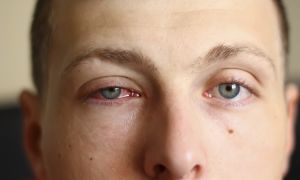Most individuals with glaucoma can wear contact lenses without any difficultly if they wish. The primary circumstance in glaucoma patients which would make wearing a contact lens difficult or relatively contraindicated is following glaucoma filtering surgery. In standard glaucoma surgery, a water blister or what is called a “bleb” often is present on top of the eye underneath the upper eyelid. On occasion the bleb can make fitting a contact lens difficult, particularly a larger extended wear or soft lens. In addition, we are always concerned about the risk of an eye infection following glaucoma surgery. It is well known that contact lenses do increase the risk of developing an eye infection, particularly if the lens is not cared for properly or is left in the eye for longer than recommended or is an extended wear type of lens. If an infection were to develop on the surface of the eye the drain that is made to relieve the pressure can allow the germ to pass inside the eye and cause a very serious infection from which vision can be lost. If you have glaucoma and wear contact lenses or might wish to in the future, please discuss this issue with your ophthalmologist.
Continue Learning about Eye and Vision
Important: This content reflects information from various individuals and organizations and may offer alternative or opposing points of view. It should not be used for medical advice, diagnosis or treatment. As always, you should consult with your healthcare provider about your specific health needs.





